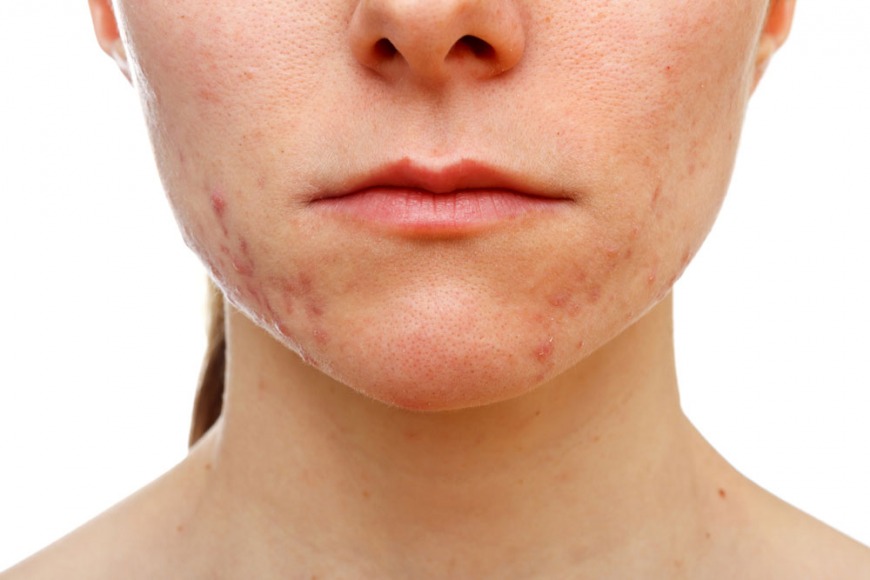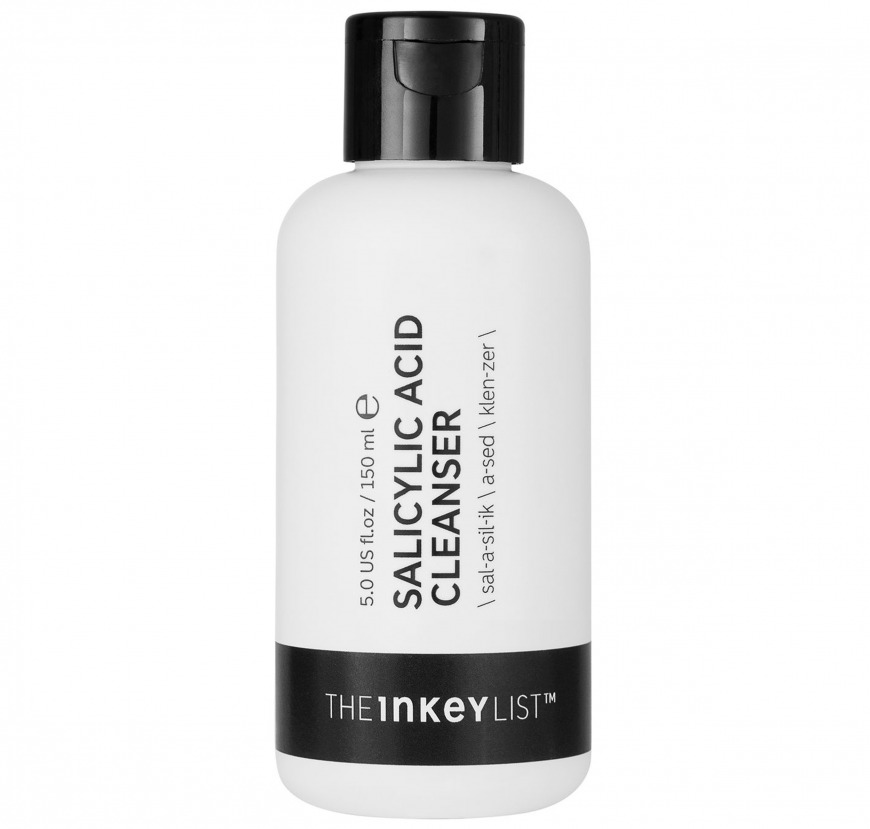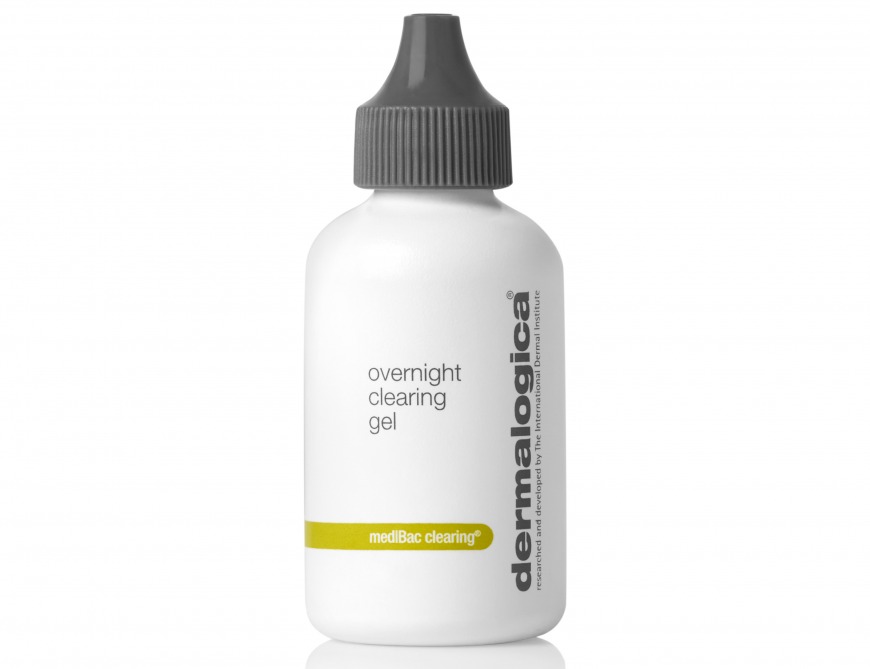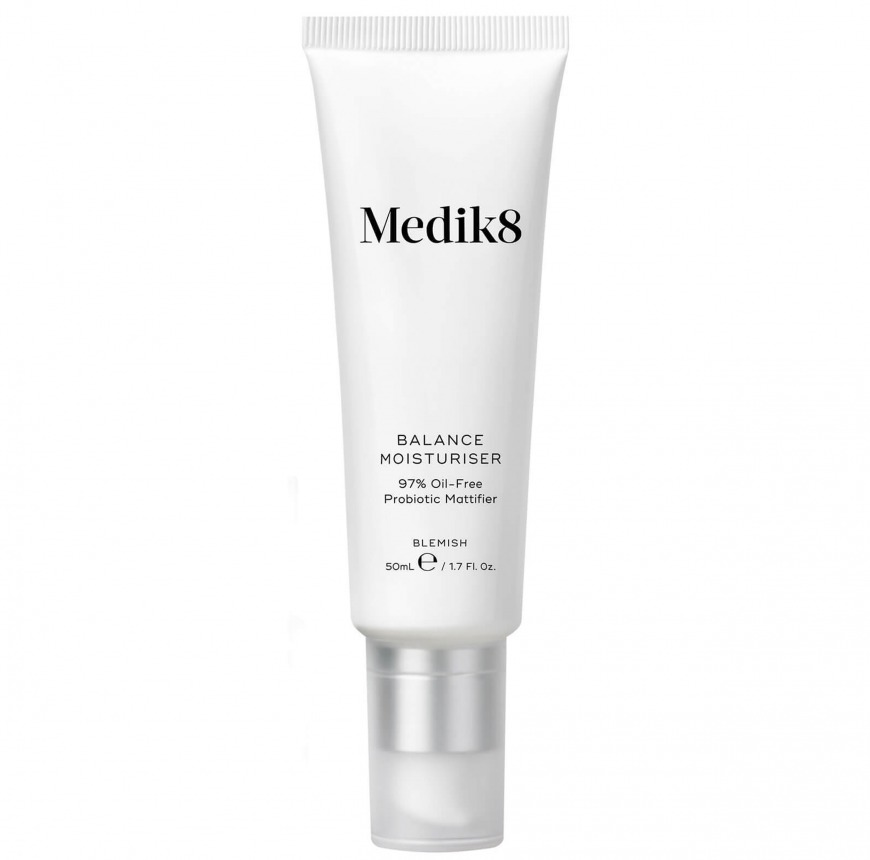A beauty therapist tells us how to tackle spots beyond your teenage years.

All Credits: PA
Unless you were extremely lucky, chances are, when you were a teenager you experienced acne of some sort, whether it was a smattering of spots or a serious outbreak.
By the time you reached adulthood, though, with a bit more luck the zits disappeared.
But what if they return? Why do some people suffer with acne way beyond adolescence?
Plus, you’re more likely to get spots around your mouth and jaw, as opposed to the T-zone.
“This is a tell-tale sign for hormonal flare ups, as oil glands, stimulated by excess hormones, are found in the chin area.”
So, what can be done to tackle the problem? Skincare is the first step, but it’s not just a case of whacking on some tea tree oil and hoping for the best.
A more holistic approach is best, our expert advises. Here’s what to do if you’re suffering with adult acne…

Go back to basics
“A simple routine is often the most effective for acne sufferers, and cleansing and treating your skin twice a day is the best way to keep breakouts at bay,” De-la-Plain says, but you should tailor your products according to your skin type.
SEE ALSO: Why You Should Follow the 60 Second Rule When Washing Your Face
“If your skin is prone to oiliness, choose a cleanser like Medik8 Clarifying Foam, which uses salicylic acid to stimulate natural exfoliation to help clear clogged follicles.

Medik8 Clarifying Foam, £17.85/AED81.99, Beauty Flash

The Inkey List Salicylic Acid Cleanser, £10.99/AED50.48, Cult Beauty
“If you have sensitive skin, look for products containing lactic acid or hydrating ingredients like glycerine, as these aren’t as drying as those made for oilier skin types.”
Be careful if you have started investing in anti-ageing skincare too, she warns: “These creams can be very rich, overload the skin and cause breakouts in acne-prone individuals.
“Look for oil-free products like Dermalogica Oil Free Matte SPF 30, which will protect you from the ageing effects of UV and unwanted spots.”

Dermalogica Oil Free Matte SPF 30, £46.50/AED213.60

Eucerin Dermo Purifyer Adjunctive Soothing Cream, £6.94/AED31.88, Boots

Kate Somerville Oil Free Moisturizer, 1.7 oz., AED565.28
Pick the right spot treatment
With so many spot treatments on the market, how do you know which is best for your you?
“Consider what type of acne you have,” De-la-Plain says. “Do you have inflamed red bumps? If so, you’ll need a spot treatment containing benzoyl peroxide, which kills bacteria and calms redness.
“If you have blackheads and whiteheads, you’ll want something with salicylic acid like Dermalogica Medibac Overnight Clearing Gel. It reduces excess oil and exfoliates dead cells from the skin’s surface.”

Dermalogica Medibac Clearing Overnight Clearing Gel, 50 ml, AED309
Don’t skip moisturiser
“While it might seem like a good idea to skip the moisturiser, if skin becomes too dry, the oil glands tend to overproduce oil and can make acne worse,” De-la-Plain says. “Hydrating the skin properly re-balances oil glands and helps control breakouts.
“Pick a light or gel consistency, like Medik8 Balance Moisturiser, with glycolic acid activator. It has anti-inflammatory properties, which also controls shine and oil production.”

Medik8 Balance Moisturiser, £45/AED206.71
If all else fails, see a professional
Everyone suffers the odd zit, but if your adult acne is persistent, don’t suffer in silence.
“If you’ve tried everything, you’re still breaking out and your acne is causing psychological problems or is impacting your work or social life, it’s time to visit your GP,” De-la-Plain says.
“If your skin issues are severe, they will refer you to a dermatologist for a further skin assessment, to try and solve your concerns.”




.png?itok=HBSyMDok)









































































.png)


























.png?itok=0fOAXkOm)

























.png?itok=EH_x0Pha)
